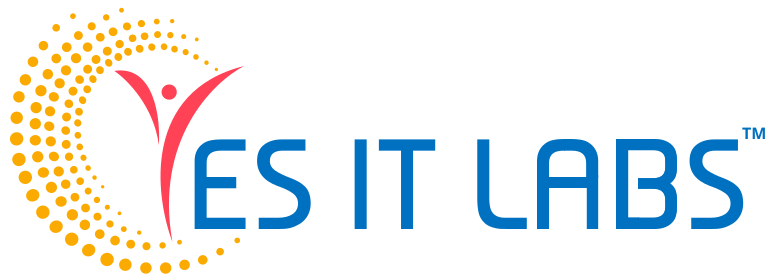Whether you’re a small startup or an established company, your website is often the first impression customers have of your brand. For this reason, hiring the right Webflow developers can make a significant difference. Webflow is a powerful web design tool that allows for both design and development, making it an excellent choice for creating professional websites. However, finding a great Webflow developer can be hard. This guide will help you navigate the process and find the perfect fit for your website development needs.
Understanding Webflow and Its Benefits
Before diving into the hiring process, it’s essential to understand what Webflow is and why it stands out in the crowded field of web development tools. Webflow is a no-code platform that lets you design websites visually while still using HTML, CSS, and JavaScript. It allows designers to create responsive websites without writing code, but it also provides developers the flexibility to add custom code if needed.
Benefits of Using Webflow:
- Design Flexibility: Webflow offers various design possibilities, enabling designers to create unique, custom websites.
- Responsive Design: Websites built with Webflow are automatically responsive, meaning they look great on any device.
- CMS Capabilities: Webflow includes a content management system (CMS) that makes it easy to manage and update website content.
- E-commerce Functionality: Webflow also supports e-commerce, allowing businesses to create online stores.
- SEO-Friendly: Webflow generates clean, semantic code, crucial for search engine optimization (SEO).
Identifying Your Needs
The first step to hiring the best Webflow developers is to know exactly what you need. Different projects require different skills, so it’s essential to have a clear vision of what you want to achieve.
Questions to Consider:
- What is the purpose of your website? (e.g., informational, e-commerce, portfolio)
- What features and functionalities do you need?
- What is your budget?
- What is your timeline for the project?
Having clear answers to these questions will help you communicate your requirements effectively to potential developers.
Evaluating Potential Candidates
Once you’ve found some potential candidates, the next step is evaluating their skills and experience. Here are some tips for evaluating Webflow developers:
Review Their Portfolio:
A developer’s portfolio is a window into their skills and style. Look for projects that are similar to yours and check the quality of their work.
Check References and Reviews:
If possible, contact previous clients to get feedback on the developer’s performance. Online reviews and testimonials can give you helpful insights.
Assess Technical Skills:
While Webflow is a no-code tool, having a developer with a strong understanding of HTML, CSS, and JavaScript can be beneficial. Ask about their technical skills and how they handle custom code within Webflow.
Communication Skills:
Effective communication is crucial for any successful project. Ensure the developer is responsive, clear, and easy to work with.
Problem-Solving Abilities:
Web development often involves troubleshooting and solving unexpected issues. Ask candidates about challenges they’ve faced in past projects and how they resolved them.
Cultural Fit:
Think about whether the developer’s work style and values match your company’s culture. A good fit culturally can make the working relationship more productive and enjoyable.
Interview Questions to Ask
During the interview process, asking the right questions can help you gauge a candidate’s suitability for your project. Consider the following sample questions:
Technical and Design Skills:
- How does your design and development process work?
- How do you ensure the websites you create are responsive?
- Can you provide examples of custom code you’ve integrated into Webflow projects?
Project Management:
- How do you handle project timelines and deadlines?
- What tools do you use for project management and communication?
- Could you provide a bit more detail about the project? For example, what industry was it in or what were the main goals?
Problem-Solving:
- What was the most challenging project you’ve worked on, and how did you overcome the obstacles?
- How do you stay updated with Webflow features and web development trends?
Client Interaction:
- How do you handle client feedback and revisions?
- Can you share an example of a successful project you worked on and what made it successful?
Making the Final Decision
After interviewing several candidates, it’s time to make your final decision. Here are some factors to consider:
- Skill Match: Does the candidate have the technical and design skills needed for your project?
- Experience: Do they have experience with similar projects and industries?
- Communication: Are they easy to communicate with and responsive to your needs?
- Budget and Timeline: Can they deliver the project within your budget and timeline?
- Intuition: Trust your gut feeling. If you feel confident about a candidate, that’s a good sign.
Onboarding Your Webflow Developer
Once you’ve selected Webflow developers, the next step is onboarding them effectively. A smooth onboarding process ensures that the developer understands your project requirements and can start working efficiently.
Steps for Onboarding:
- Provide Detailed Project Brief: Share all relevant information, including your goals, target audience, design preferences, and any specific functionalities you need.
- Set Clear Expectations: Discuss deadlines, communication frequency, and milestones. Make sure both parties agree on the project’s scope and deliverables.
- Share Resources: Provide access to any necessary resources, such as brand guidelines, content, images, and existing website assets.
- Establish Communication Channels: Decide on the best tools and platforms for communication and project management. Regular updates and check-ins are essential to keep the project on track.
- Foster Collaboration: Encourage open communication and collaboration between your team and the developer. This ensures that everyone understands and is focused on achieving the same objectives.
Managing the Project
Effective project management is crucial for the success of your website development. Here are some tips to make sure your project goes well:
- Regular Check-Ins: Schedule regular meetings to review progress, discuss any challenges, and make necessary adjustments.
- Feedback Loop: Provide timely and constructive feedback. Be clear about what you like and what needs improvement.
- Monitor Milestones: Keep track of key milestones and ensure the project is progressing as planned.
- Be Flexible: Be open to adjustments and changes as the project evolves. Flexibility can lead to better results and a more polished final product.
Launching and Post-Launch Support
Once your website is ready, it’s time for the exciting launch phase. However, your relationship with the Webflow developers shouldn’t end there. Post-launch support is essential for maintaining and improving your website.
Launch Checklist:
- Testing: Conduct thorough testing to ensure everything works correctly. Test on different devices and browsers to ensure a seamless user experience.
- SEO Optimization: Ensure your website is optimized for search engines. This includes meta tags, alt texts, and keyword optimization.
- Analytics Setup: Set up analytics tools to track your website’s performance and gather valuable insights.
Post-Launch Support:
- Regular Updates: Websites require regular updates and maintenance. Ensure your developer is available for ongoing support.
- Performance Monitoring: Keep an eye on your website’s performance and make necessary improvements based on analytics data.
- Content Management: Use Webflow’s CMS to manage and update your content regularly. Fresh content can improve SEO and keep your audience engaged.
- Feedback and Improvement: Gather feedback from users and continuously work on improving your website.
Conclusion
Hiring the best Webflow developer for your website development project is a crucial step toward creating a successful online presence. By understanding your needs, searching in the right places, evaluating candidates thoroughly, and managing the project effectively, you can ensure a smooth and successful collaboration. Remember, your website is often the first impression customers have of your brand, so investing in skilled Webflow developers is essential.
This guide has highlighted the importance of defining your needs, leveraging various platforms to find the right talent, and evaluating candidates comprehensively. The steps outlined for onboarding and project management ensure that your collaboration with dedicated Webflow experts is productive and aligned with your business goals. With the right approach, you can hire Webflow developers who will bring your vision to life, delivering a website that stands out in the competitive digital landscape.









